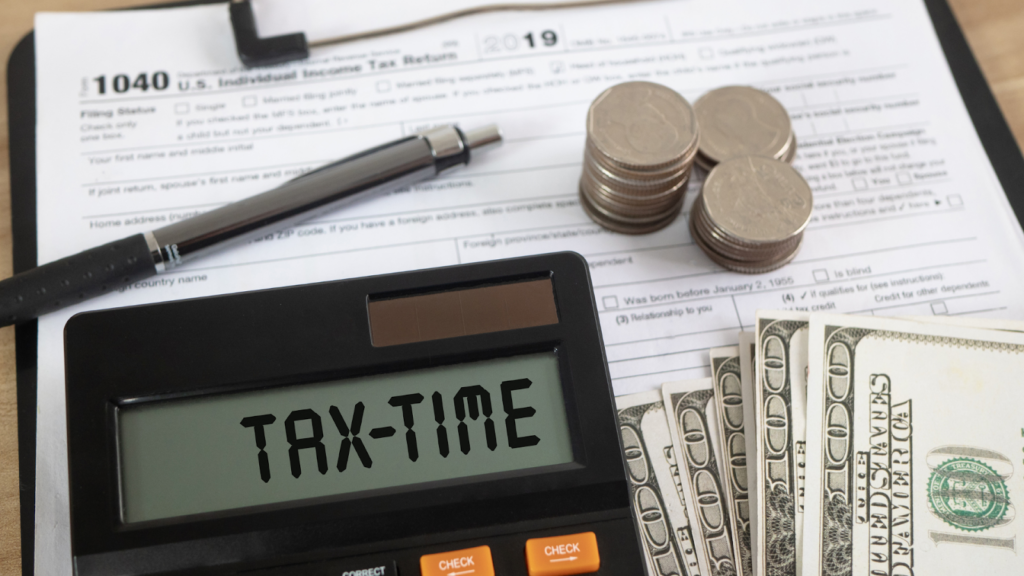Claiming Property Taxes On Your Tax Return: What You Need To Know
April 11, 2025
Key Takeaways:
- Tax Deductibility: Property taxes are deductible if you itemize deductions on Schedule A (Form 1040), but the SALT cap limits deductions to $10,000 ($5,000 for married filing separately).
- Maximizing Savings: Homeowners can reduce taxable property value by claiming exemptions like homestead, senior, and disabled veterans’ exemptions, lowering their property tax bill.
- Lowering Tax Burden: Rather than just claiming deductions, Icon Property Tax helps homeowners reduce their assessed property values, ensuring they pay less from the start—with zero upfront fees!
Are you paying more in property taxes than you should? Many homeowners don’t realize they can deduct a portion of their property taxes on their federal tax return. But understanding what qualifies, how much you can deduct, and how to claim it can be confusing.
Here at Icon Property Tax, we help property owners lower their tax bills and maximize their deductions. With over 30 years of experience and $95 million saved for our clients, we know how to challenge unfair assessments and reduce your tax burden. And with our no savings, no fee policy, you only pay when you save.
In this guide, we’ll explain how property tax deductions work, who qualifies, and how to get the most savings possible. Plus, we’ll show you why lowering your tax bill with Icon Property Tax is the smartest way to keep more money in your pocket.
A Brief Overview: Deducting Property Taxes
Property taxes fund essential services and are based on the assessed value of your property. Whether included in your mortgage escrow or paid directly, they are tax-deductible, helping reduce taxable income and lower your financial burden.
Here at Icon Property Tax, we simplify property tax appeals with trusted local tax agents and a zero upfront cost approach. You only pay when you save—ensuring you never overpay on your property taxes:
Who Is Eligible?
To qualify for a property tax deduction, you must be a property owner who has paid real estate taxes within the tax year for which you are filing. These taxes must be based on the assessed value of your property and applied uniformly to all properties within the jurisdiction. However, not all property-related payments qualify for deductions. Fees for services such as water, sewer, or trash collection are not considered deductible property taxes.
Deduction Limits
The Tax Cuts and Jobs Act of 2017 (TCJA) placed a cap on the total amount of state and local taxes (SALT) that can be deducted, including property taxes. Currently, the deduction is limited to:
- $10,000 for single filers and married couples filing jointly
- $5,000 for married individuals filing separately
This change significantly impacts homeowners, particularly those in high-tax states or with expensive properties. If your total state and local taxes exceed these limits, you won’t be able to deduct the full amount on your federal income tax return.
Claiming The Deduction
To claim a property tax deduction, you must itemize your deductions on your federal tax return rather than taking the standard deduction. This involves completing Schedule A (Form 1040) and calculating whether itemizing provides more tax benefits than the standard deduction.
For many homeowners, the standard deduction may be higher than their total itemized deductions, making itemizing unnecessary. However, if your total deductible expenses exceed the standard deduction, claiming your property taxes can result in significant tax savings.
Tax Deductions For Property Taxes
Understanding which property taxes can be deducted on your tax return is essential to maximizing your savings. While some taxes are eligible, others are not, making it crucial to differentiate between deductible and non-deductible property expenses:
Eligible Property Taxes
State and local property taxes imposed on real estate, including primary residences, vacation homes, and land, are deductible as long as they are based on the assessed value of the property. These taxes fund essential services such as education, public safety, and infrastructure, ensuring that they serve the general public’s welfare.
Taxes Based On Assessed Value
Only property taxes that are determined by the property’s assessed market value qualify for deductions, meaning taxes levied on a uniform basis across all properties. Taxes specifically used for local benefits or improvements that increase property value do not qualify under federal tax deduction rules.
Non-Deductible Special Assessments
Special assessments for property improvements such as new sidewalks, sewer lines, and street lighting cannot be deducted since they directly enhance a property’s value. These costs are considered investments rather than general tax obligations, making them ineligible for tax deductions under IRS guidelines.
Fees And Service Charges
Charges for municipal services like trash collection, water supply, and sewer maintenance do not qualify as deductible property taxes. These are considered user fees rather than taxes and are separate from real estate assessments that determine tax liabilities for homeowners at the local level.

How To Claim Property Taxes On Your Tax Return
Navigating the process of claiming property taxes on your tax return is essential for maximizing deductions and reducing your taxable income. To ensure you benefit from available deductions, follow these key steps when filing your return:
1. Determine Your Eligibility
Before claiming your property tax deduction, you must decide whether itemizing your deductions is more beneficial than taking the standard deduction. If your total deductible expenses exceed the standard deduction, itemizing could lower your tax liability and provide greater financial benefits when filing your federal return.
2. Gather Documentation
Accurate records are essential to support your property tax deduction claim and avoid IRS scrutiny. If you have a mortgage, your lender will issue Form 1098, detailing taxes paid from escrow, while homeowners who pay directly should maintain payment receipts for reference.
3. Complete Schedule A (Form 1040)
To claim your property tax deduction, you must itemize deductions on Schedule A of Form 1040. This requires adding up all deductible property taxes paid during the tax year and ensuring the total meets IRS guidelines for legitimate state and local tax deductions.
4. File Your Tax Return
After completing Schedule A, attach it to Form 1040 and submit your return to the IRS. Double-checking all entries for accuracy is crucial to prevent errors, avoid audits, and ensure you are maximizing your tax savings through proper property tax deductions.

Maximizing Your Savings With Property Tax Exemptions
Property tax exemptions reduce your taxable property value, lowering tax liability and maximizing savings. Identifying available exemptions ensures financial relief and tax efficiency.
- Homestead Exemption: provides tax relief by reducing the taxable value of a primary residence. Homeowners benefit from lower annual property tax obligations and savings.
- Over-65 & Disability Exemptions: offer additional reductions for senior citizens and qualifying disabled individuals. These exemptions help reduce property tax burdens significantly each year.
- Disabled Veterans Exemption: provides tax reductions for service-related disabled veterans. This exemption can eliminate or reduce property tax liabilities, depending on the disability rating.
- Local Exemptions: vary by county and municipality. Some areas provide additional tax relief programs that further decrease property taxes for qualifying homeowners.
Icon Property Tax helps homeowners maximize exemptions, reducing tax burdens with zero upfront fees. Only pay when you save!
The Role Of Icon Property Tax
Navigating property tax deductions and appeals can be overwhelming, but Icon Property Tax simplifies the process. We help homeowners reduce their assessed property values, ensuring they pay only what they owe and maximize potential tax savings. Here’s how we can help:
Expert Property Tax Protests
Icon Property Tax specializes in challenging unfair property assessments, ensuring homeowners are not overpaying on property taxes. Our team handles everything, from filing the protest to representing you in front of the Appraisal Review Board (ARB) for a fair and accurate valuation.
Data-Driven Property Tax Analysis
Our experts use market research, property valuation models, and real estate trends to build a strong case for property tax reductions. By combining advanced analytics with local property insights, we provide accurate, well-supported arguments to fight for the lowest possible assessment.
Personalized Property Tax Solutions
Every homeowner’s situation is unique, so we tailor our services to fit your specific needs. Whether you are a first-time property owner or have multiple properties, our trusted local tax agents work closely with you to minimize your property tax burden effectively.
No Risk, Performance-Based Pricing
With our “No Savings, No Fee” policy, you only pay if we successfully lower your property tax bill. There are zero upfront costs, making our service a risk-free opportunity for homeowners to challenge unfair property assessments and potentially save thousands.
Final Thoughts
Understanding how much of your property taxes are tax-deductible is crucial for maximizing savings and making informed financial decisions. While the IRS allows deductions for certain property taxes, the $10,000 SALT cap limits how much can be deducted. This makes it even more important to ensure you’re not overpaying on your property taxes in the first place. Taking advantage of exemptions and understanding deduction eligibility can help reduce your overall tax burden. However, the best strategy isn’t just claiming deductions—it’s proactively lowering your property tax assessment to minimize costs before you file your tax return.
Frequently Asked Question About What You Need To Know In Claiming Property Taxes On Your Tax Return
What are property taxes and how do they work?
Property taxes are government-imposed levies based on a property’s assessed value, funding essential services such as schools, roads, and emergency responders. They vary by location, depend on local tax rates, and must be paid annually by property owners to maintain compliance with tax laws.
Can I deduct property taxes on my federal income tax return?
Yes, property taxes are deductible if you itemize deductions instead of taking the standard deduction. However, due to the SALT deduction cap of $10,000, high-tax state residents may not receive the full deduction benefit when filing their federal income taxes.
What is the difference between a property tax deduction and a credit?
A tax deduction reduces taxable income, potentially lowering your overall tax bill, while a tax credit provides a direct dollar-for-dollar reduction in the amount of taxes owed. Deductions lower taxable income, whereas credits directly decrease the tax liability.
How do I know if I’m eligible to claim property taxes on my tax return?
To be eligible, you must be the property owner and have paid taxes assessed on the property’s fair market value. Only taxes levied for general public services qualify, while payments for utilities, special assessments, or homeowner association fees are ineligible.
What forms do I need to claim property taxes?
Homeowners must use IRS Form 1040 and complete Schedule A to itemize deductions, listing the amount of property taxes paid. If paying taxes through a mortgage escrow, Form 1098 from the lender will show the total amount paid during the tax year.
Is there a limit to how much property tax I can deduct?
Yes, the Tax Cuts and Jobs Act limits total state and local tax deductions, including property taxes, to $10,000 for single filers and married couples filing jointly, and $5,000 for married individuals filing separately, reducing available tax savings for high-tax regions.
Can I claim property taxes for multiple properties?
Yes, property taxes paid on multiple owned properties, including primary residences, vacation homes, and land, are deductible. However, total deductions for all properties combined remain subject to the $10,000 SALT cap, limiting the tax benefit for individuals with several properties.
What if I pay property taxes through an escrow account?
If property taxes are paid through an escrow account, only the amount actually paid to the tax authority within the tax year qualifies for deduction. Mortgage lenders provide Form 1098 detailing property tax payments made on behalf of the homeowner, ensuring accurate deductions.
How can I lower my property tax bill?
Lowering your property tax bill involves appealing the assessed value, requesting exemptions, and ensuring your property’s valuation aligns with market conditions. Icon Property Tax assists homeowners by handling tax protests, reducing overassessed property values, and ensuring fair taxation with no upfront costs.

